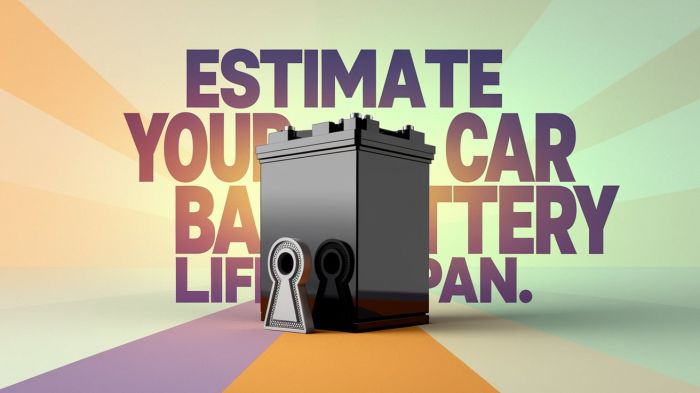Ford is a world-renowned company when it comes to quality vehicles and engines. The Ford 5.4L Triton engine is one of the many engines that Ford uses to power some of its flagship vehicles. It is installed in big trucks, SUVs, and even power cars such as the Ford Mustang Cobra and Ford GT. The 5.4L V8 engine is part of Ford's Modular V8 engine family and was introduced in 1997.
Key features and my opinion about the 5.4L Triton engine
- Production years:1997-2014
- Average lifespan of 5.4 Triton:300,000-340,000 miles
- Fuel supply type:port injection
- Power range:235-691 hp
- Fuel efficiency:bad
- Engine block material:cast iron
- Engine reliability score:high
- The most common problems:timing chain issues, mysterious ticking noise, oil consumption.
Understanding the 5.4L Triton engine
The 5.4L Triton engine is a V8 engine launched in 1997 and first installed on the F150. The engine is in the Ford Modular family, where different engines share some engine components. The engine comes with a 5,408 cc displacement or 5.4L.
Ford used the 5.4L Triton on F-series pickups first. The engine boasts a bore diameter of 3.552 inches, and the stroke is 4.165 inches or 105.8 mm. Because of the increased height of the engine block, the manufacturer increased the stroke, allowing the engine to achieve a 1.60:1 rod-to-stroke ratio.
There are mainly three different versions of the 5.4L Triton engine; the 2-valve, 3-valve, and the 4-valve.
- The 2-valve version of the 5.4L engine is the oldest, and its block is cast iron, while the cylinder head is aluminum. This version was listed among the 10 best engines for four years, starting 1997 to 1998 and 2000-08. It was used on Ford F-Series and Ford E-Series, among others.
- The 3-valve with VVT was introduced in 2002 and is SOHC, just like the preceding version, Ford 4.6L V8. The 3-valve engine. It has improved power and torque and boasts variable camshaft timing (VCT). The vehicles using this engine include the 2002 Ford Fairmont, 2002-05 Ford Falcon, 2004-07 Ford F-Series, and Lincoln Mark LT.
- The 4-valve dual overhead camshaft version was introduced in 1999 and came with the DOHC 4-valve. The same engine was used to power the 2000 Ford Mustang and Ford GT supercar. There are subtle differences between the different 4-valve engines installed on various car makes and models.
The Ford Company mainly modified the 5.4L engine over its lifespan by using the Eaton 2300 Lysholm supercharger. Oil squirters are used on pistons and dual fuel injectors for each cylinder. The engine can either be a rear-wheel drive or a four-wheel drive. The transmissions coupled with the engine can be 4, 5, or 6-speed auto transmission and 5 or 6 manual transmission. These added features have continued to keep the 5.4L highly competitive.
The 5.4L Triton noise
The 5.4L V8 engine is dependable. However, three types of noises keep dogging it. These noise reports pop up in almost all online 5.4L Triton forums. They are;
- Oil
Many drivers report hearing a ticking noise when their vehicle reaches operating temperature. The ticking noise comes about when you use heavy oil like 20W-50 or 10W-30. When this heavier oil courses through the engine's top end, the ticking noise is made because the engine components are struggling. The noise is due to the heavier oil not dissipating even after the engine warms up.
It is crucial to know that the longer you retain the heavy oil in the engine, the worse it is for the engine. Once the noise starts, it is likely to grow louder with time.
Solution
The engine manufacturer loads the engine with 5W-20 or 5W-30 semi-synthetic engine oil. Always use the recommended oil to avoid this noise issue. In warmer climates, your mechanic may advise you to use thicker oil to make the engine operate optimally. If you ever hear the ticking noise in your engine and you have used the heavier oil, immediately replace it with the right kind to avoid damaging the engine.
- Spark plugs threads noise
This noise starts when the spark plug's threaded sleeve becomes loose and detached from the surrounding cylinder head material. This causes the spark plug to be forcibly pushed out when a hard compression stroke happens. The spark plug threads, the spark plug itself, and the coil on the plug get ejected.
This issue seems to affect the Ford Modular engines because even the 6.8L V10 engine has been known to have these spark plug issues. In extreme cases, the spark plug can 'split' out of the cylinder head. When this happens, you will hear a loud bang and a hammering noise that goes in rhythm with the engine.
Solution
Ford seems to need a permanent solution to this issue, but it has afforded the affected drivers a safe repair solution for now. The quick solution that pro mechs have always suggested is a Helicoil.
The spark plug problem can cost you anything from $200 to complete engine replacement, which can run into thousands of dollars. Before 2009, using an aftermarket Helicoil came with the risk of severe engine damage. This is because the aftermarket Helicoil could not transfer the high temperature in the spark plug to the cylinder head material. This is why Ford forbade the use of aftermarket Helicoil before 2009.
Today you can solve this issue using the Ford Helicoil kit. If you encounter this noise, stop driving the vehicle immediately and have it towed to a Ford dealership. Continuing to drive your vehicle can cause severe engine damage and under-the-hood fire.
- Oil filter noise
This is a rattling noise that starts on cold starts. The noise will continue until the engine warms up to operating temperature. A quality oil filter should have an anti-flow back valve that keeps the oil at the engine's top end when switched off. This technology ensures the valve train gets lubricated immediately after the engine is fired up rather than after several seconds when the oil moves from the oil pan to the top of the engine.
Solution
This problem can arise due to a faulty oil filter. However, this problem almost always happens when you use a cheap aftermarket oil filter. The more inexpensive filters don't come with a flow-back valve. Even though you might save a few dollars when you use the cheaper oil filters, expect this rattling noise on cold starts.
- Ignition coil issue
This issue has been reported by owners of the 2, 3, and 4-valve 5.4L engines. You should note that ignition coils naturally wear out, and their failure cannot be precluded as a 5.4L engine issue. The spark plugs and the ignition coil issue are interrelated and may come with a misfire, loss of power, rough idle, and stuttering symptoms.
Solution
This is corrected by replacing the ignition coils. Replacing the plugs and the ignition coils should be easy. However, it is recommended that all eight ignition coils be replaced together.
Other 5.4L Triton problems
- Stuck spark plugs - This issue is related to the spark plug threads' noise. It seems the 5.4L engine and other Modular family engines manufactured in 2004 have a cylinder head issue because there have been several reports of spark plugs blowing out or getting stuck. This problem arises when a gap between the spark plug and the cylinder head appears. Carbon deposits fill the gap, making the spark plug get stuck.
- Intake manifold cracking - Many drivers have reported this problem via Ford online forums. The cause of this issue has been pointed to the use of plastic material used in the intake manifold area, which is subjected to extremely high temperatures. Some experts have also gone as far as blaming the issue on a design flaw.
- Timing chain issue - The timing chain issues in the 5.4L Triton emanate from a loose timing chain. The chain will start vibrating, and over time the tensioners are broken. In the 3-valve and the 4-valve 5.4L engine, the VVT can be affected because a loose timing chain can damage the cam phaser. A loose timing chain may lead to severe issues, such as valves contacting the pistons. In some instances, the engine can be damaged beyond repair.
Conclusion
The 5.4L Triton engine is dependable. It has been used to power some of America's most popular and reliable trucks. The F150 and the F250 are for sure good examples of what a good engine the 5.4L is. Over the years, the manufacturer has employed new technology, which has seen the engine move from a 2-valve SOHC to a 4-valve DOHC.
Every engine has its fair share of issues, and the 5.4L Triton is no exception. The noise issues are quite common, but if noted early enough, you shouldn't have a hard time dealing with them or driving your vehicle. The engine's reliability is guaranteed, given that it will serve you for over 200,000 miles.
About the authors
The CarAraC research team is composed of seasoned auto mechanics and automotive industry professionals, including individuals with advanced degrees and certifications in their field. Our team members boast prestigious credentials, reflecting their extensive knowledge and skills. These qualifications include: IMI: Institute of the Motor Industry, ASE-Certified Master Automobile Technicians; Coventry University, Graduate of MA in Automotive Journalism; Politecnico di Torino, Italy, MS Automotive Engineering; Ss. Cyril and Methodius University in Skopje, Mechanical University in Skopje; TOC Automotive College; DHA Suffa University, Department of Mechanical Engineering






Add comment